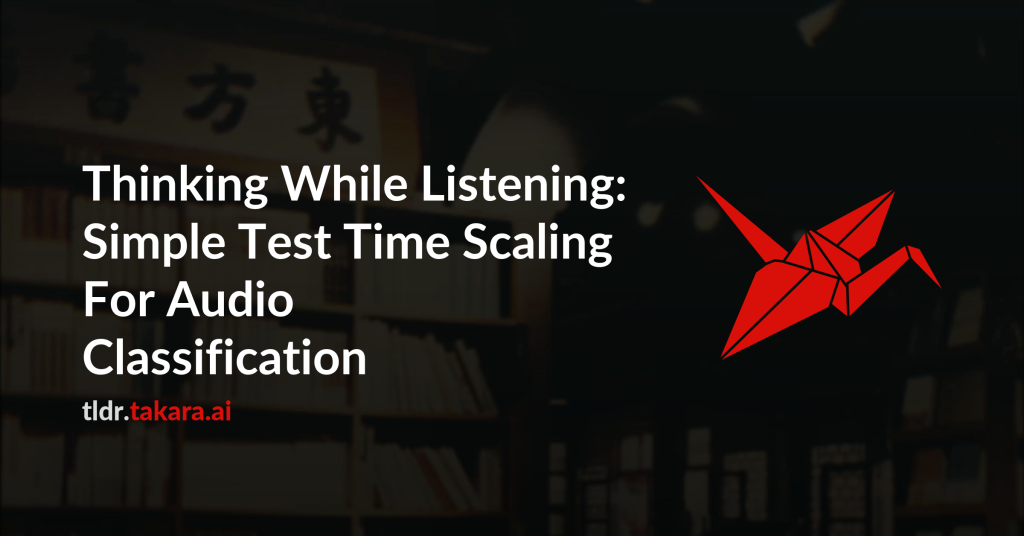We propose a framework that enables neural models to “think while listening”
to everyday sounds, thereby enhancing audio classification performance.
Motivated by recent advances in the reasoning capabilities of large language
models, we address two central questions: (i) how can thinking be incorporated
into existing audio classification pipelines to enable reasoning in the
category space and improve performance, and (ii) can a new architecture be
designed from the ground up to support both thinking and test-time scaling? We
demonstrate that in both settings, our models exhibit improved classification
accuracy. Leveraging test-time scaling, we observe consistent gains as the
number of sampled traces increases. Furthermore, we evaluate two open-source
reasoning models, GPT-OSS-20B and Qwen3-14B, showing that while such models are
capable of zero-shot reasoning, a lightweight approach–retraining only the
embedding matrix of a frozen, smaller model like GPT-2–can surpass the
performance of billion-parameter text-based reasoning models.

